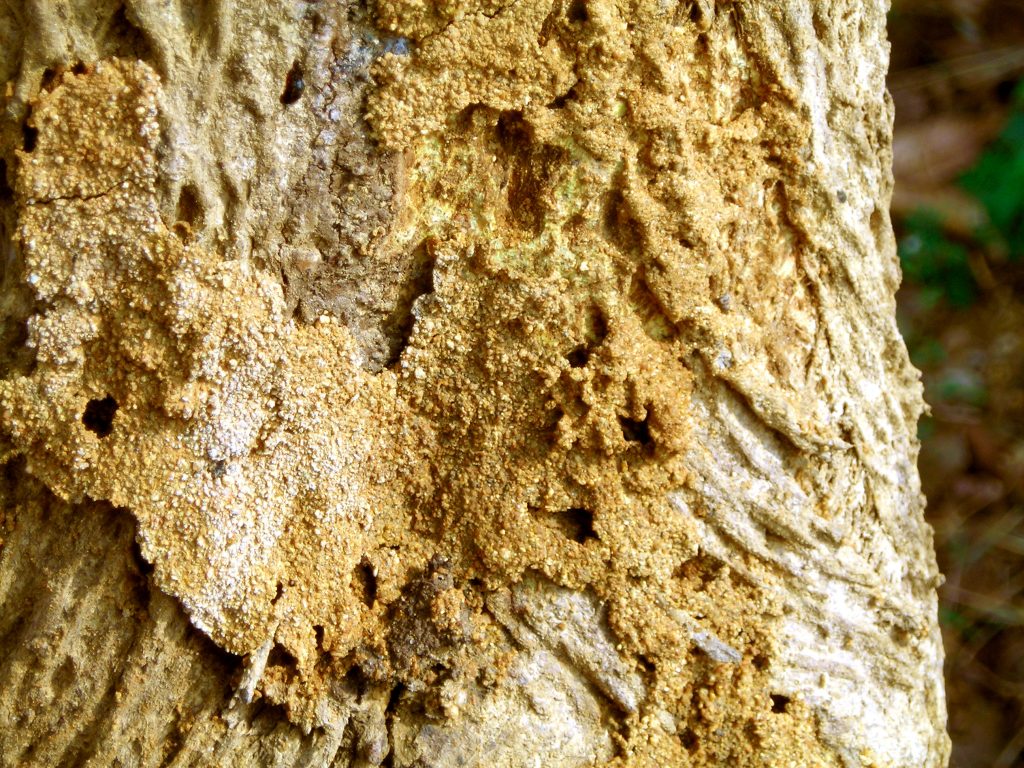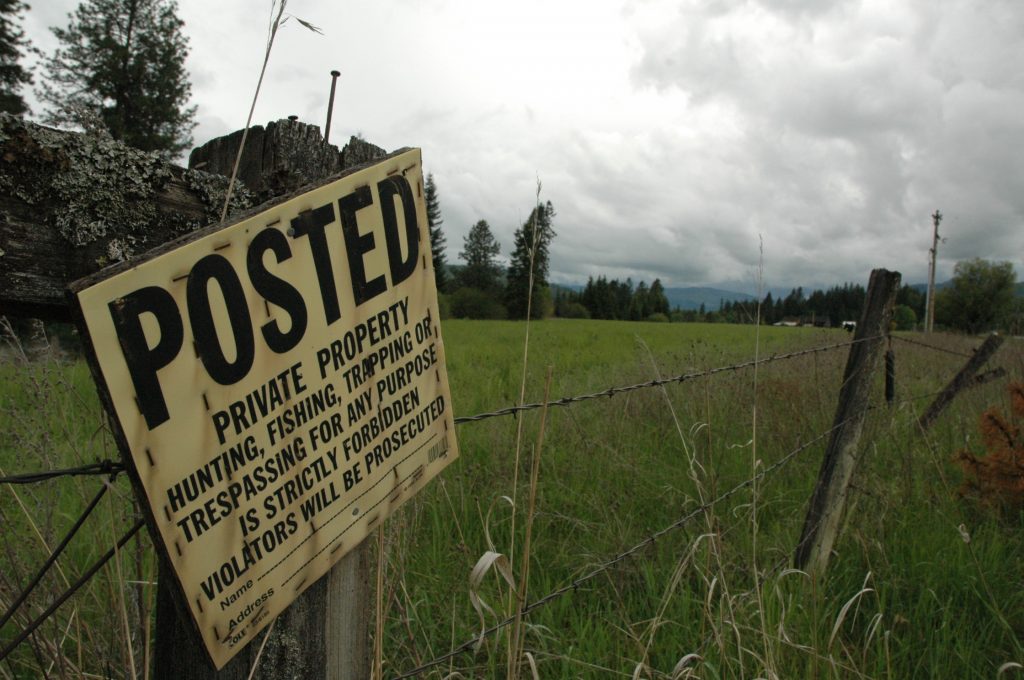 Buying or selling a home is a complicated process filled with legal and practical pitfalls that can cause problems for both the buyer and seller. One of the most important steps that a person engaged in a transaction with potential legal issues must take is to speak with a good lawyer who can navigate the process and make sure their rights and interests are protected to the fullest extent possible. A good lawyer can also make sure that the buyer or seller understands all the implications of contractual language. In a home sale, every word in the agreement is important and can alter the rights of everyone involved in the transaction. One or two seemingly insignificant words can entirely change the rights and protections that a party may normally receive under the law. The Prejeans found out the hard way. In their case, a combination of a few termites, some water, and the two little words “as is,” led to a massive headache and loss of money when they purchased a home in Houma, Louisiana.
Buying or selling a home is a complicated process filled with legal and practical pitfalls that can cause problems for both the buyer and seller. One of the most important steps that a person engaged in a transaction with potential legal issues must take is to speak with a good lawyer who can navigate the process and make sure their rights and interests are protected to the fullest extent possible. A good lawyer can also make sure that the buyer or seller understands all the implications of contractual language. In a home sale, every word in the agreement is important and can alter the rights of everyone involved in the transaction. One or two seemingly insignificant words can entirely change the rights and protections that a party may normally receive under the law. The Prejeans found out the hard way. In their case, a combination of a few termites, some water, and the two little words “as is,” led to a massive headache and loss of money when they purchased a home in Houma, Louisiana.
The Prejeans entered into a purchase agreement to buy the house in Houma from John Monteiro. John’s wife acted as the realtor. Prior to closing the sale, the Monteiros disclosed that the house had previously been infested with termites. The Prejeans had Terminex inspect the house. Termites were found living in the house and a later home inspection found defects in the house such as a wet spot on the wall in the kitchen and standing water in the same location, among other issues. The report prompted the Prejeans to request that Mr. Monteiro make repairs, treat the home for termites, and acquire a termite treatment plan from Terminex. The Prejeans retained a right to inspect the house, including opening up the walls to ensure that termites and moisture were not present, before closing the sale, but chose not to exercise those rights. Instead, the Prejeans executed an Act of Cash Sale, providing that the sale was “as is” and waiving all warranties on the property.
Following the completion of the sale, the Prejeans began renovating the home but had to halt the renovations when they found that there was extensive termite damage and infestation combined with water damage. The Prejeans filed a lawsuit against the Monteiro estate and against Ms. Monteiro as the acting realtor. Mr. Monteiro passed away before the lawsuit was filed.
 Louisiana Personal Injury Lawyer Blog
Louisiana Personal Injury Lawyer Blog


 In joint real estate ventures, all partners are presumed to be equal unless agreed otherwise. All parties should have equal decision-making power, share equally in gains and losses, and possess equal interests in the subject property. Cooperation among the partners is essential to the success of the venture. Each person must enter into the transaction with an open mind towards other partner’s ideas and business tactics. However, when one person uses the other partners for his own personal gain, litigation usually follows. This was the unfortunate situation in the following case.
In joint real estate ventures, all partners are presumed to be equal unless agreed otherwise. All parties should have equal decision-making power, share equally in gains and losses, and possess equal interests in the subject property. Cooperation among the partners is essential to the success of the venture. Each person must enter into the transaction with an open mind towards other partner’s ideas and business tactics. However, when one person uses the other partners for his own personal gain, litigation usually follows. This was the unfortunate situation in the following case. Normally, people pay extra for waterfront property but prefer for their yard to be on a lake front, have an ocean view, or even have a pond on the property. Most would not consider having a home built on an improperly graded yard that fills up with water every time it rains a desirable body of water to have on the property. This is exactly what happened to Debbie Shepard in May of 2009 when her backyard had a hole in it that was promised to be fixed before the closing of the house. Luckily for her, she was entitled to remedies under the Louisiana New Home Warranty Act (“NWHA”).
Normally, people pay extra for waterfront property but prefer for their yard to be on a lake front, have an ocean view, or even have a pond on the property. Most would not consider having a home built on an improperly graded yard that fills up with water every time it rains a desirable body of water to have on the property. This is exactly what happened to Debbie Shepard in May of 2009 when her backyard had a hole in it that was promised to be fixed before the closing of the house. Luckily for her, she was entitled to remedies under the Louisiana New Home Warranty Act (“NWHA”). Below is a case of a home sale in St. Bernard Parish that didn’t go all too well. In this case, communications between the parties to the sale were delayed and the sale never went through. The case highlights the need to be diligent when buying or selling real estate and the necessity of having a good real estate lawyer.
Below is a case of a home sale in St. Bernard Parish that didn’t go all too well. In this case, communications between the parties to the sale were delayed and the sale never went through. The case highlights the need to be diligent when buying or selling real estate and the necessity of having a good real estate lawyer. Sometimes we don’t have the best neighbors. For example, a neighbor might block access to your land, arguing that it is, in fact, the neighbor’s land you traverse on a daily basis. When such a dispute arises, get a good real estate attorney. If ingress to a piece of your property requires you to pass over someone else’s land, you might need to seek an easement. An easement is simply a right of passage through someone else’s land. This can be done in one of three ways: (1) by agreement, (2) by traditional or historic use, or (3) by necessity. In a recent case, the parties fought over the right to pass over a gravel road in Webster Parish, Louisiana. In the case, the court discusses its discretion in deciding whether an easement is necessary.
Sometimes we don’t have the best neighbors. For example, a neighbor might block access to your land, arguing that it is, in fact, the neighbor’s land you traverse on a daily basis. When such a dispute arises, get a good real estate attorney. If ingress to a piece of your property requires you to pass over someone else’s land, you might need to seek an easement. An easement is simply a right of passage through someone else’s land. This can be done in one of three ways: (1) by agreement, (2) by traditional or historic use, or (3) by necessity. In a recent case, the parties fought over the right to pass over a gravel road in Webster Parish, Louisiana. In the case, the court discusses its discretion in deciding whether an easement is necessary.  Sometimes even the best-planned of deals amongst parties may fall through. Parties often turn to the courts to resolve contractual disputes. When a court is interpreting a contract between two parties, it is often as simple as applying the “four corners” rule. I.e. it will not look at anything outside the four corners of the contract. This particular method of interpretation is useful (and under Louisiana law mandatory) where a contract is written clearly and is not ambiguous. In a recent case, the Louisiana Fourth Circuit Court of Appeal upheld this method of interpretation when faced with a contract dispute out of Orleans Parish.
Sometimes even the best-planned of deals amongst parties may fall through. Parties often turn to the courts to resolve contractual disputes. When a court is interpreting a contract between two parties, it is often as simple as applying the “four corners” rule. I.e. it will not look at anything outside the four corners of the contract. This particular method of interpretation is useful (and under Louisiana law mandatory) where a contract is written clearly and is not ambiguous. In a recent case, the Louisiana Fourth Circuit Court of Appeal upheld this method of interpretation when faced with a contract dispute out of Orleans Parish. When the government takes privately owned property to be used for the benefit of the public, it is called an expropriation. Federal and state law prohibit the government from taking private property without compensating the owner. The Louisiana Constitution provides that property shall not be taken or damaged by the State except for a public purpose and with just compensation paid to the owner of the private property. A landowner whose property is expropriated by the State is to be compensated so that he remains in the equivalent financial position he enjoyed before the taking. The following case provides a concrete example of such a situation.
When the government takes privately owned property to be used for the benefit of the public, it is called an expropriation. Federal and state law prohibit the government from taking private property without compensating the owner. The Louisiana Constitution provides that property shall not be taken or damaged by the State except for a public purpose and with just compensation paid to the owner of the private property. A landowner whose property is expropriated by the State is to be compensated so that he remains in the equivalent financial position he enjoyed before the taking. The following case provides a concrete example of such a situation. Expropriation is the act of the government taking privately owned property and using it for the benefit of the public. Generally, most expropriation cases deal with the construction of public roadways and highways. Where the land is expropriated, the private landowner is generally compensated. In one particular matter involving the expropriation of land to build a highway, valuing the trees on the land became more troublesome than anticipated.
Expropriation is the act of the government taking privately owned property and using it for the benefit of the public. Generally, most expropriation cases deal with the construction of public roadways and highways. Where the land is expropriated, the private landowner is generally compensated. In one particular matter involving the expropriation of land to build a highway, valuing the trees on the land became more troublesome than anticipated. When purchasing property, buyers should be aware of rights reserved by others in the deed. Certain reservations of rights made by an original owner can continue to haunt a parcel of property through successive conveyances and multiple owners. In Louisiana, the language in a deed can create a personal servitude, a charge or burden on a piece of property for the benefit of another person. Personal servitudes are not automatically extinguished at death and may be inheritable by descendants of the beneficiary. For example, a seller may reserve hunting rights for his or her family on the newly purchased property for generations. Needless to say, disputes often arise regarding the breadth and depth of such reservations. When interpreted by a court, the intent of the original parties in negotiating the reservation is key, as shown by a recent decision of the Louisiana Third Circuit Court of Appeal.
When purchasing property, buyers should be aware of rights reserved by others in the deed. Certain reservations of rights made by an original owner can continue to haunt a parcel of property through successive conveyances and multiple owners. In Louisiana, the language in a deed can create a personal servitude, a charge or burden on a piece of property for the benefit of another person. Personal servitudes are not automatically extinguished at death and may be inheritable by descendants of the beneficiary. For example, a seller may reserve hunting rights for his or her family on the newly purchased property for generations. Needless to say, disputes often arise regarding the breadth and depth of such reservations. When interpreted by a court, the intent of the original parties in negotiating the reservation is key, as shown by a recent decision of the Louisiana Third Circuit Court of Appeal. Property disputes can be complicated and confusing, so it is important to hire an excellent lawyer capable of untangling all of the issues involved in the case. Plaintiff Don Whitlock owns property in East Carroll Parish, Louisiana and brought a petition against Defendant Fifth Louisiana District Levee Board and its lessee, Jamie Isaac, seeking a preliminary and permanent injunction to prevent the defendants from trespassing on his property when they travelled across to access a hunting lease owned by the defendant Levee Board that is located west of Plaintiff’s property. Mr. Whitlock farms on the three lots of land at issue and alleged Issac caused damage as he crossed all three lots, creating ruts in the soil, damaging crops, and changing the flow of water. The defendants, however, argued that the land was conveyed to plaintiff’s ancestor with a public right of passage in the deed, and thus there could be no suit for trespass. The Trial Court agreed and with the defendants and held that there was no cause of action. It also held that since Mr. Whitlock was not the sole owner of the land (there were other owners on two of the three lots), he failed to join all the parties and further lacked the capacity to sue in a representative capacity for the other owners. Finally, it took a “strange” step in ruling on the merits of the preliminary injunctions despite the fact that it had sustained the exceptions raised by the defendants. It held that preliminary injunction could not be granted because Mr. Whitlock failed to show irreparable harm. Thus, the Trial Court dismissed the case. On appeal, Mr. Whitlock argued that the Trial Court’s rulings were improper.
Property disputes can be complicated and confusing, so it is important to hire an excellent lawyer capable of untangling all of the issues involved in the case. Plaintiff Don Whitlock owns property in East Carroll Parish, Louisiana and brought a petition against Defendant Fifth Louisiana District Levee Board and its lessee, Jamie Isaac, seeking a preliminary and permanent injunction to prevent the defendants from trespassing on his property when they travelled across to access a hunting lease owned by the defendant Levee Board that is located west of Plaintiff’s property. Mr. Whitlock farms on the three lots of land at issue and alleged Issac caused damage as he crossed all three lots, creating ruts in the soil, damaging crops, and changing the flow of water. The defendants, however, argued that the land was conveyed to plaintiff’s ancestor with a public right of passage in the deed, and thus there could be no suit for trespass. The Trial Court agreed and with the defendants and held that there was no cause of action. It also held that since Mr. Whitlock was not the sole owner of the land (there were other owners on two of the three lots), he failed to join all the parties and further lacked the capacity to sue in a representative capacity for the other owners. Finally, it took a “strange” step in ruling on the merits of the preliminary injunctions despite the fact that it had sustained the exceptions raised by the defendants. It held that preliminary injunction could not be granted because Mr. Whitlock failed to show irreparable harm. Thus, the Trial Court dismissed the case. On appeal, Mr. Whitlock argued that the Trial Court’s rulings were improper.